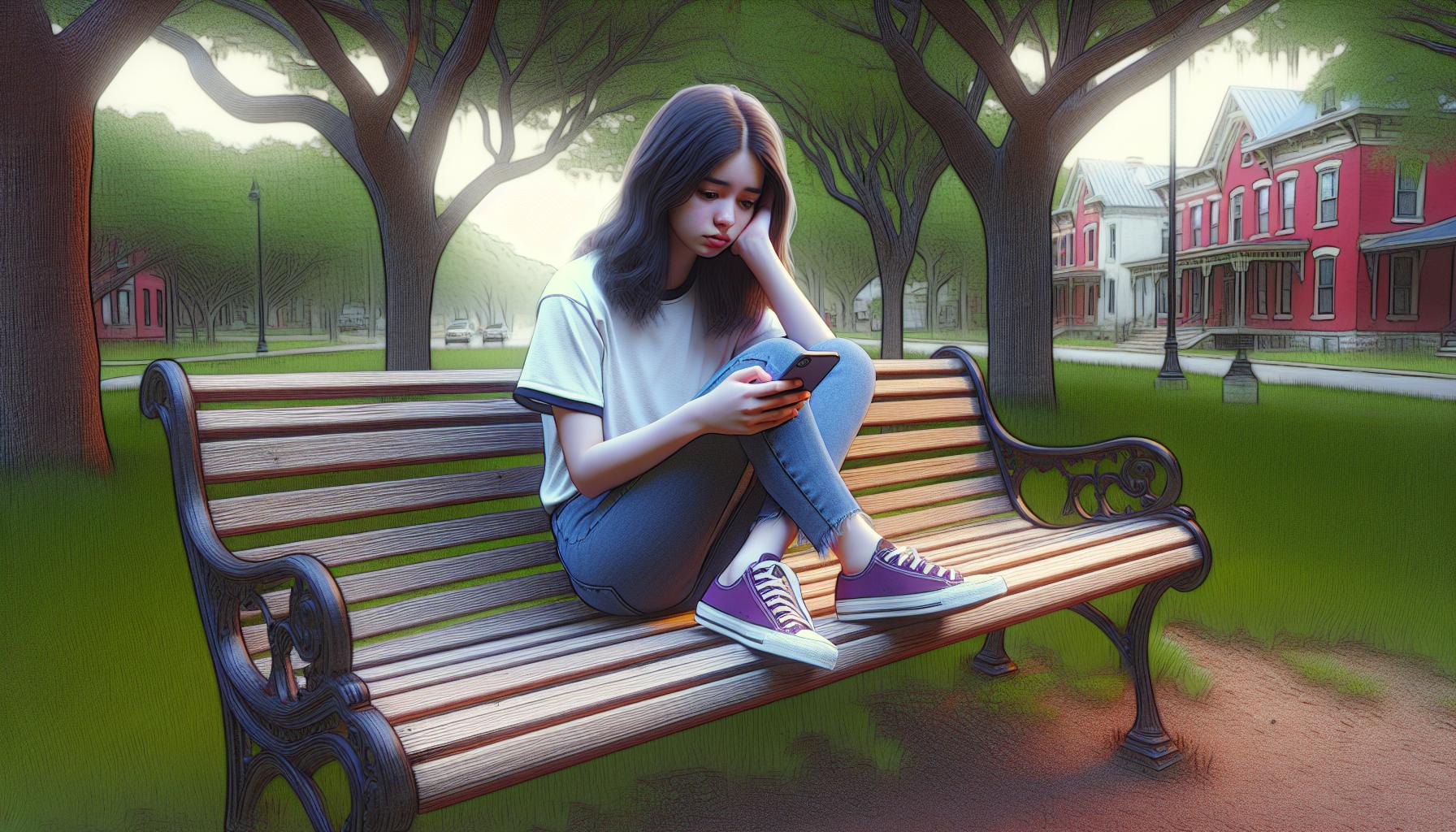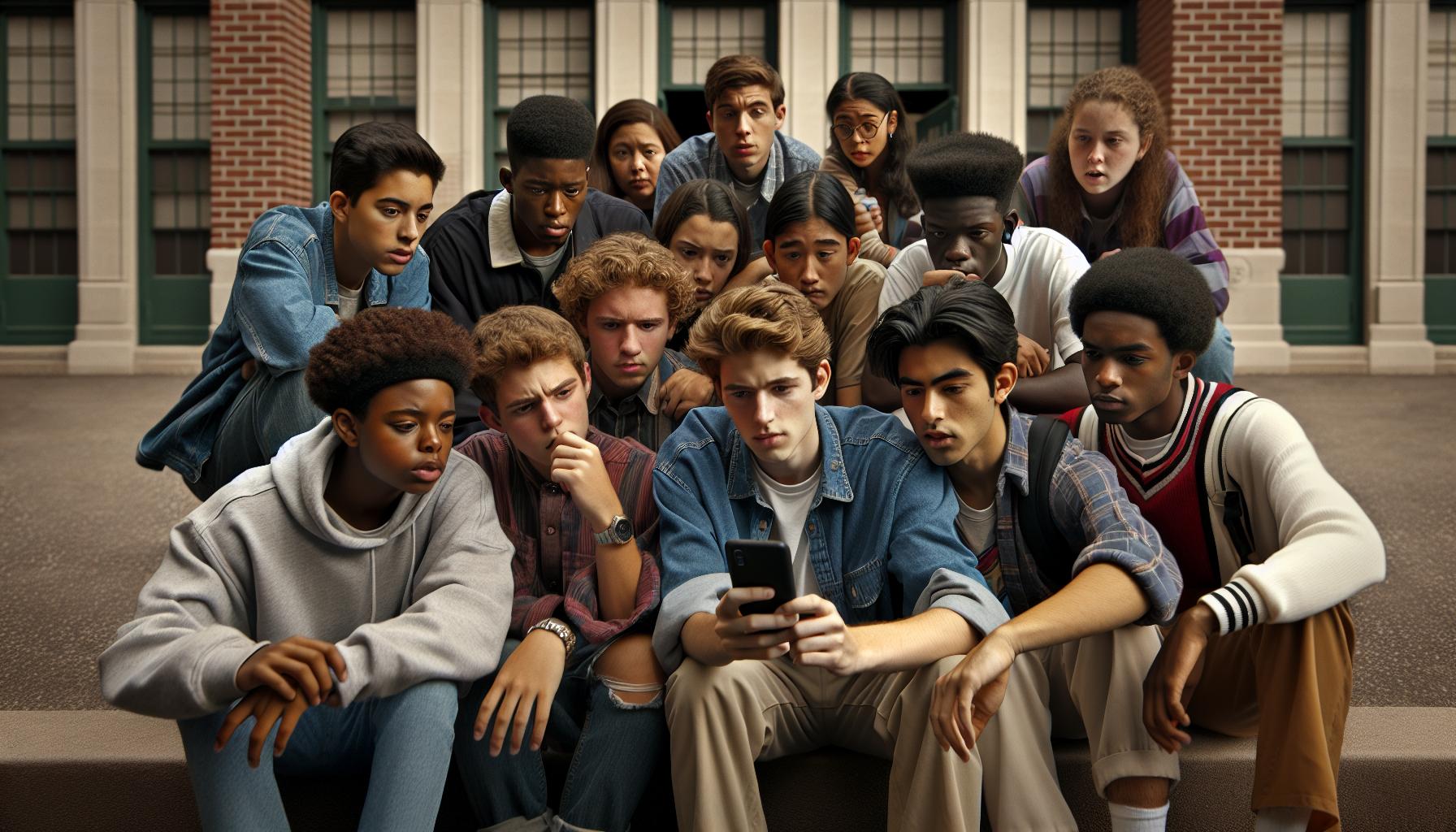Social media has become an integral part of teen life, but its impact isn’t all positive. While platforms like Instagram and Snapchat offer opportunities for connection, they also expose young users to a host of challenges that can affect their mental and emotional well-being. From cyberbullying to unrealistic beauty standards, the risks associated with social media use are increasingly concerning.
Research shows that excessive social media engagement can lead to anxiety, depression, and feelings of isolation among adolescents. Teens often compare themselves to curated online personas, which can distort their self-image and self-worth. Understanding the darker side of social media is crucial for parents and educators who want to protect the younger generation from its negative effects.
Key Takeaways
- Mental Health Risks: Excessive social media use can lead to increased anxiety, depression, and feelings of isolation among teens, making it essential for caregivers to be aware of these risks.
- Negative Body Image: Social media promotes unrealistic beauty standards, leading to poor self-esteem and negative body image in nearly 40% of adolescents, exacerbated by the comparison culture prevalent on these platforms.
- Cyberbullying Impact: With around 37% of teens experiencing online harassment, cyberbullying can severely affect mental health, causing anxiety and depression while reducing self-esteem.
- Academic Performance Decline: Excessive engagement with social media often correlates with lower academic achievement, as distractions from social platforms interfere with students’ study time and focus.
- Importance of Awareness: Parents and educators must understand the potential negative impacts of social media to implement strategies that encourage healthy online engagement and support teens effectively.
- Proactive Strategies: Encouraging reporting of cyberbullying, promoting digital citizenship, and fostering open communication can help mitigate the adverse effects of social media on teens.
Why Social Media is Bad For Teens
Social media presents complex challenges for teenagers, with significant negative implications for mental and emotional well-being. Research shows that 90% of teens use social media, which exposes them to risks like cyberbullying, with nearly 37% of young users experiencing online harassment. Platforms like Instagram, Snapchat, and TikTok often promote unrealistic beauty standards, causing unhealthy body image issues among 40% of teenagers.
Data indicates that excessive social media use correlates with increased rates of anxiety and depression. A study found that teens who spend over three hours daily on social media face greater risks of developing mental health disorders. Additionally, the constant comparison to curated online personas distorts self-image, leading to feelings of inadequacy among adolescents.
Awareness of these dangers is crucial for parents and educators. By understanding the harmful effects of social media, they can implement strategies to protect teens, encouraging healthy engagement with digital platforms while addressing issues like cyberbullying and mental health challenges.
Mental Health Impacts

Social media significantly affects teens’ mental health, leading to increased anxiety and feelings of isolation. Recognizing these impacts helps caregivers and educators support healthier online behaviors.
Increased Anxiety Levels
Increased anxiety levels occur in teens who engage excessively with social media. Research indicates that adolescents spending over three hours daily on these platforms report heightened anxiety symptoms. This anxiety often stems from constant notifications, fear of missing out (FOMO), and the pressure to maintain an ideal online persona. Teens frequently feel compelled to check their accounts, creating a cycle of stress and worry. Consequently, this relentless engagement can lead to difficulty concentrating and disrupted sleep patterns.
Depression and Isolation
Depression and isolation correlate with prolonged social media use among teenagers. Studies show that nearly 20% of teens experience depressive symptoms attributed to online interactions. The unrealistic portrayals of life on social media can create feelings of inadequacy and loneliness. Teens often feel misunderstood or disconnected from their peers, leading to significant emotional distress. This sense of isolation can further exacerbate depressive symptoms, as young individuals retreat from social interactions in real life.
Negative Body Image

Negative body image among teens often stems from the unrealistic standards set by social media. Constant exposure to idealized images leads to unfavorable comparisons, fostering poor self-esteem and unhealthy body perceptions.
Comparison Culture
Comparison culture permeates social media, creating a cycle of inadequacy. Teens frequently measure themselves against curated posts showcasing seemingly perfect lives and bodies. Research highlights that 70% of adolescents feel pressured to conform to these unrealistic ideals. This pressure can lead to harmful behaviors, including disordered eating and extreme dieting efforts, as teens try to attain an unattainable standard.
Influencer Effect
The influencer effect significantly impacts body image perceptions among adolescents. Many influencers promote specific body types and lifestyles, often editing or altering images to achieve perfection. Studies indicate that about 50% of teens feel compelled to emulate the looks and lifestyles of influencers. This emulation can result in negative self-esteem and a distorted view of beauty, further exacerbating mental health issues related to body image.
Cyberbullying

Cyberbullying poses a significant threat to teenagers, impacting their mental health and well-being. With the prevalence of social media, this form of harassment escalates due to anonymity and the widespread nature of online interactions.
Prevalence and Effects
Approximately 37% of adolescents experience online harassment, which manifests as spreading rumors, sending threatening messages, or posting hurtful comments. This harassment often leads to anxiety, depression, and feelings of isolation among the victims. Research indicates that teens who are targets of cyberbullying are more likely to engage in self-harming behaviors and exhibit severe emotional distress, with about 20% reporting symptoms of depression directly linked to online interactions. The constant exposure to negative messages erodes self-esteem and promotes a distorted self-image, complicating their emotional landscape.
Strategies to Combat Cyberbullying
Implementing effective strategies can reduce the incidence of cyberbullying. Educators and parents can take proactive measures by promoting digital citizenship and fostering open communication about online experiences. Guidelines for teens include:
- Encouraging Reporting: Teens should report any instances of cyberbullying to trusted adults or platform moderators.
- Creating Support Networks: Establishing supportive friendships and encouraging open dialogues within peer groups can help victims share their experiences and seek help.
- Educating on Privacy Settings: Teens should utilize privacy settings on social media accounts to limit exposure to potential bullies.
- Promoting Empathy: Fostering empathy and kindness within online communities can create a more positive environment, discouraging harmful behaviors.
By adopting these approaches, families and schools can empower teenagers to navigate the digital landscape more safely and confidently.
Impact on Academic Performance
Social media significantly impacts academic performance among teens. Research shows that students who engage excessively with social media often experience declines in grades and motivation. Many students spend over three hours daily on these platforms, leading to reduced study time and distracted learning.
Studies indicate that 40% of adolescents report lower academic achievement linked to social media use. Frequent notifications and the allure of constant updates disrupt concentration, making it difficult for teens to focus on assignments or study effectively. This distraction often results in decreased academic performance.
Homework completion suffers due to the time spent on social media. A survey revealed that about 30% of students admitted they spend less time on homework because they prioritize social media interactions. As students prioritize social interactions online, the quality and quantity of their academic work diminish.
Additionally, social media promotes procrastination among teens. The continuous cycle of checking feeds can delay necessary tasks, resulting in last-minute cramming for assignments. Nearly 25% of students recognize that social media distractions lead to poor time management, impacting their ability to meet deadlines.
The pressure to maintain an online presence exacerbates stress. Teenagers often juggle academic responsibilities with the need to post and engage online, causing increased anxiety and reducing their output. It’s common for students to feel their academic performance suffers due to this dual focus, further contributing to stress.
Moreover, excessive use of social media correlates with sleep deprivation, which negatively affects academic performance. Studies indicate that about 60% of teens report sleep issues linked to late-night scrolling. Lack of sufficient sleep results in decreased cognitive function, leading to poorer concentration and retention of information in academic settings.
The various dimensions of social media use contribute to lower academic performance among teens. Distractions, procrastination, and sleep deprivation create a challenging environment that undermines educational success.
Social Media’s Impact on Teenagers
Social media’s impact on teenagers is profound and often detrimental. The pressures of online interactions can lead to increased anxiety and depression, as teens grapple with unrealistic beauty standards and the threat of cyberbullying. These platforms can distort self-image and contribute to feelings of isolation, making it crucial for parents and educators to understand these challenges.
By fostering open discussions and promoting healthy online habits, adults can help teens navigate the complexities of social media. Awareness and proactive measures can empower young individuals to engage with these platforms more safely, ultimately supporting their mental well-being and academic success.